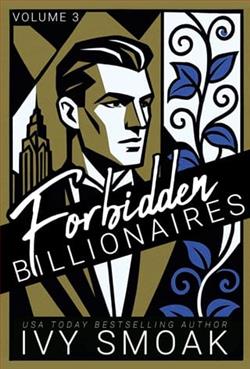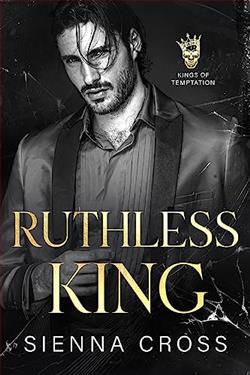Page 86 of A Woman of Passion
“I think Elizabeth asked Cecil to help. He worked for my husband years ago. In fact, it was Duke Dudley who got young King Edward to appoint Cecil as principal secretary. Queen Mary didn't keep him on in that position, but he still has influence.”
Bess sighed, remembering the caustic young man who had been a friend to her and William. Elizabeth had always trusted Cecil. Suddenly Bess wanted Elizabeth to know the rumor about the queen. It would give her a glimmer of hope. No one in the realm had more reason to hate Bloody Mary than Elizabeth did!
Bess told no one she was going to Hatfield, except the coach driver. When she was taken to Princess Elizabeth's private wing by attendants she had never seen before, Bess realized just how long it had been since she had visited. When the red-haired young women at last came face to face, Bess swept into a curtsy, then arose so they could study each other.
“I cannot believe it has been four years,” Elizabeth said, putting a cautionary finger to her lips. Though Bess and Elizabeth had corresponded, they'd had to read between the lines. None of their private thoughts could be put down on paper. Whenever Bess had a child, she had told Elizabeth, who had written back to congratulate her, and when Sir William died, Elizabeth had sent her condolences.
Elizabeth took Bess into a private sitting room with a blazing fire. Bess kissed Cat Ashley, and that good woman took her embroidery and sat at the door as a watchdog so that the two friends might share their intimate thoughts.
“You are much thinner, Bess. Being widowed has robbed you of your lovely round curves.”
“A part of me died with William, but you know what that is like, Your Grace.”
“I do. But the sharp sorrow is tempered by poignancy and memories, even though they are bittersweet. I have learned there is something harder to bear than sorrow. It is fear—stark terror. When she sent me to the Tower, I did not believe I would come out alive. Even when I was released and sent to Woodstock, I could not sleep for fear of a dagger in the night; I could not eat for fear of poison. Her spies are here at Hatfield.”
Bess realized what Elizabeth said about fear was true. Bess herself had not lived a day without the terrifying emotion since William had told her of his trouble. “Your Grace, that is the reason I came. I wanted to ignite a tiny spark of hope.” Bess lowered her voice. “Lady Catherine Grey told her mother that Mary is ill. She is grossly swollen, but not with child. Philip has gone back to Spain in disgust.”
For a moment Elizabeth's amber eyes glittered gold. “She will never name me her successor. For months they have been trying to marry me to Spain, but so far I have eluded their trap.” They talked on for two hours. Elizabeth told Bess how sick and tired she was of living a nun's life and wearing severe gray dresses every day of her life. Bess told Elizabeth of the massive burden of debt she owed the Crown and how she was struggling to hold on to what was hers.
Bess dared not stay longer in case she aroused suspicion. “I must go, Your Grace.”
“Bess, you have given me hope that there is a light at the end of this very long tunnel. Promise you will come again if you hear anything—anything at all!”
On the drive back to Brentford, Bess felt good about her visit. If she could bring a little warmth, a bit of happiness, or a glimmer of hope to the ones who mattered in her life, it would help to fill the emptiness inside her.
One month inexorably followed another, and at the end of each one, Bess heaved a heartfelt sigh of relief that Parliament had not yet signed the bill to recover what she owed the Crown. It was an intimidating prospect to pit her will against the government, to pay regular visits to her lawyers and browbeat them to use every means in hope of delaying the day of reckoning.
In order to assure herself things were being run properly in the north, Bess made hurried visits to Derbyshire and took her mother back to Chatsworth as caretaker, to be in charge of the magnificent house that was all but closed down. In the carriage Bess's mother tried to give her daughter some advice.
“Bess, darling, you are so slim these days; you are working and worrying yourself into a decline. Don't you think it would be more sensible to sell Chatsworth and rid yourself of this massive burden of debt? Then you could marry a country squire and live in peace and comfort for the rest of your life.”
Bess stared at her mother in horror. “A squire? A bloody country squire? Bite your tongue! I should hope my ambition would allow me to look higher than a squire! But in any case I shall never marry again!”
Back at Brentford Bess burned candles long into the night, balancing her income with her output and cutting corners to make ends meet. Her sons were growing so rapidly, none of their clothes fit them, and on top of that she had no choice but to find the money for tutors. She couldn't afford to send them off to school, and they were becoming little hellions without the strong influence of their father.
Late one June night Bess was surprised by a visitor. When she realized the well-built, handsome man was Robin Dudley, she took him upstairs to her private sitting room.
“Lady Cavendish, you are even more beautiful today than the first time I met you.”
“My lord, I am almost thirty.”
His dark brown eyes shone with amusement. “Never admit to more than twenty-seven; it is a perfect age for a woman.”
Bess laughed. “All right, then, I won't.” She sobered quickly. “You are back from France. Was it very bad?”
“It was a bloody, shameful, ignoble defeat. We lost Calais.”
“I know. Mary's reign has been a disaster for everyone —for your family, for mine, and now for England.”
“Lady Cavendish—Bess, I know I can trust you, but may I speak plainly and in confidence?”
“Robin, you may say anything to me.”
“Have you seen Elizabeth?”
“Five months ago I took her the news that Mary was ill.”
“I am longing to see her, but I dare not go yet. Will you visit her again and tell her that Mary is incurably ill? I cannot reveal my sources, but Mary is still refusing to name Elizabeth her successor. So when she dies it may mean civil war to put Elizabeth on the throne. But whatever it takes we will do it. Just tell her that the wheels have been set in motion. She will understand.”















